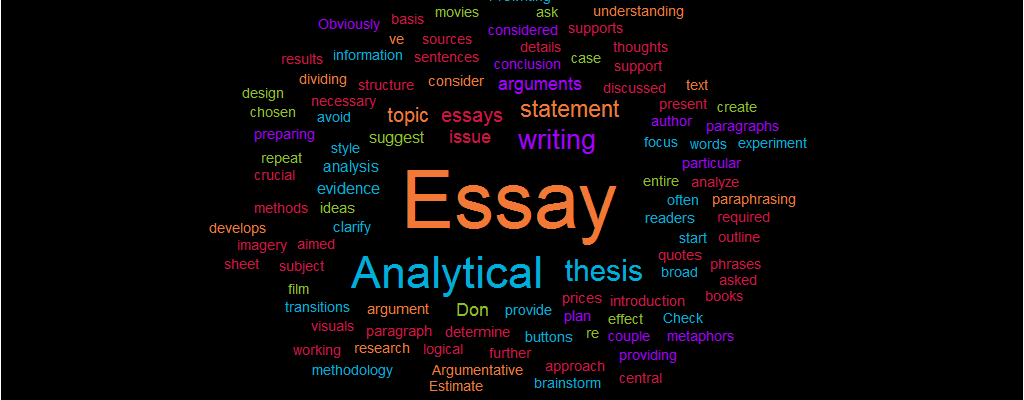Write Your Analytical Essay: a Few Simple Steps
Publication Date:

Prewriting
Before you start writing, we suggest preparing for it. You should determine the idea of your essay. Argumentative essays are aimed to provide readers with arguments about a certain issue. Most often, such essays analyze books or movies, but you may also be asked to consider a certain idea or issue. We suggest dividing your topic into parts, providing arguments for each particular part.
- After you’ve chosen a topic, take your time and brainstorm. You have to determine your thesis statement, because it’s the basis of the entire essay. First of all, focus on ideas, metaphors, and phrases that repeat most often. Obviously, they are crucial for your understanding of the subject. After that, analyze author’s methods – how the author develops the topic, which logical transitions are made to create a certain effect or to make a certain conclusion. If you’re writing about a film, consider visuals and imagery. In case you’re working on some research, focus on methodology and results. Estimate the whole design of the experiment.To plan your further work, write your central idea on the sheet of paper, and then arrange all the smaller ideas, noting logical connections.
- Write your thesis statement. It can be a couple sentences long. This idea must summarize all your claims and arguments. Don’t make your thesis too obvious or broad. You have to present a specific thought that will reflect a particular feature of the discussed issue.
- Your thesis must be arguable, because an analytical essay requires you to pick a side and support your point with arguments.
- Don’t forget that essays are a relatively short type of papers, so your topic must fit it. Don’t choose too broad subjects because you won’t have enough space to discuss it in details.
- We suggest not using the so-called “three-prong” method, which implies writing a brief representation of three points that will be discussed further. Such an approach limits you and complicates the process of writing your arguments. Just try to formulate your main point regarding the considered issue, and let it be clear and concise.
- Determine your evidence that proves your point. You can use either primary or secondary sources. Check your assignment and clarify which sources are preferable. Your evidence must be persuasive and directly related to your thesis statement.
- Now, when you determined your argument, write an outline. It will simplify writing of your analytical essay a lot. Check the required number of words and plan the structure of your essay. Five-paragraph essays are the most common task, though some teachers prefer longer essays with more detailed analysis. While writing an outline, sort your thoughts by groups and plan the structure of your paragraphs.
Writing an Analytical Essay
- Start with the introduction. It must provide your readers with the necessary background information on the considered issue. It must motivate your readers to read more, but don’t make it too dramatic. We suggest not starting the introduction with an exclamation or question. You also should avoid writing from the first or second person in analytical essays. Write your thesis statement in the middle or at the end of your introduction, and move right to the body part.
- As we mentioned above, the body of your essay must consist of a few paragraphs, each one of them should include a sentence devoted to the topic, analysis of a certain part of the text, and evidence from the text that supports your thesis statement and analysis. The first sentence of the paragraph must clarify what exactly you are going to consider in it. The analysis consists of your argument, and the evidence supports it. Remember that each your claim must be tied to the thesis statement.
- Think where it’s better to use or avoid quoting or paraphrasing. Direct quotes must be written in quotation marks, according to a certain citation style. You can ask your teacher to clarify which style (Chicago, MLA, or APA) is required. Paraphrasing means summarizing certain ideas and information from the source, using your words. Sometimes such an approach allows you to tell more details using less space. Support all controversial thoughts with quotes, and make sure that they take no more than two sentences of each paragraph (the rule of thumb).
- The conclusion of the essay must present your thesis statement in the more global context. You have to explain the importance of your work and provide a new argument. Tell about the significance of your point and the topic.
Finalizing
Read your essay a couple times and fix all grammar and spelling mistakes. Make sure that you follow the necessary format (spaces, commas, titles, quotes). Don’t be afraid to ask somebody for help or order professional proofreading.